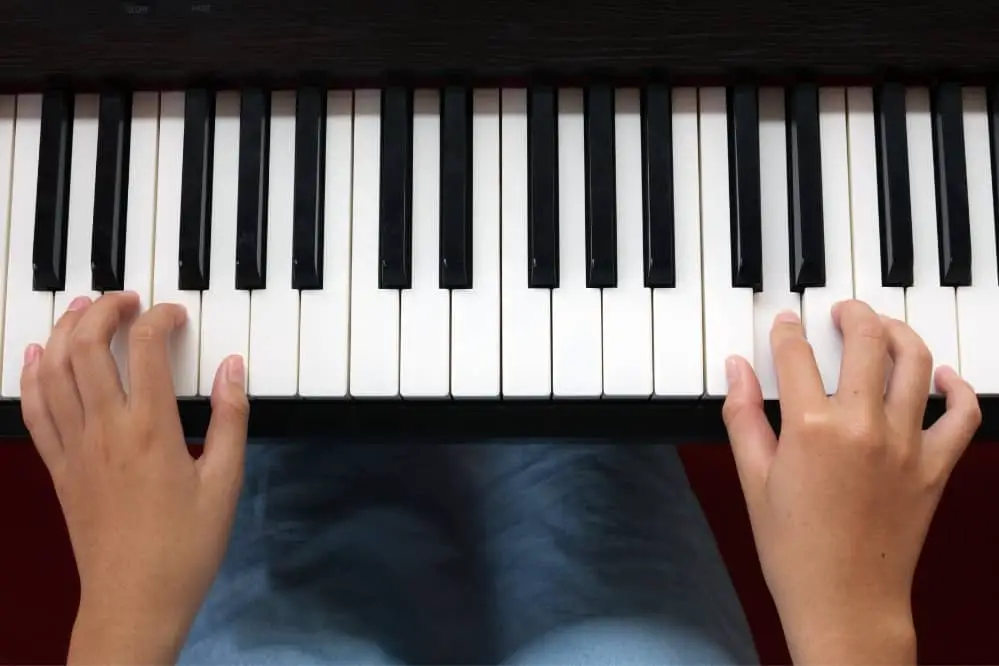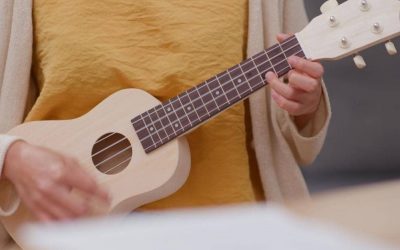If you’re a piano player, practicing is a part of your life, but just like anything else you do that is physical, you can suffer with sweat on your fingers and palms as you practice, which is uncomfortable to say the least. When this happens, it can be difficult to concentrate on your playing, and it can also cause your fingers to slide all over the piano keys.
While suffering with sweaty hands when you’re playing the piano is not that uncommon, the solutions are a lot easier than you think. After all, you don’t want to be missing chords or playing unevenly just because of your sweaty hands, so below are a few things that you can do about it.
7 Tips for Playing Piano with Sweaty Hands
1. Use a Handkerchief
Even when you’re performing, you can discreetly use a handkerchief when you’re playing, but don’t buy just any handkerchief. Use only handkerchiefs that are cotton-based because not only are they great at wicking away moisture, but they are easy to clean because they are machine washable. If you put them in your pocket, they’ll present a very professional look, or you can even put it inside of the piano if you like so that no one notices it’s there.
Some players also use small dish towels or napkins, but the latter can tear apart easily and even fly off the piano if there’s a fan or other type of breeze nearby. A cotton handkerchief is your best option because it is small and because it works!
2. Change the Location of Your Piano
Basic care of your piano requires you to make sure the temperature in the room doesn’t get too warm. Your piano should always be in a room with a temperature that is either normal or a little on the cool side. In fact, if you can keep your piano in a room that has no windows, it’s even better. In addition to the temperature, you want a room with good ventilation because this can directly affect the temperature of the room.
That being said, never let air blow directly on the piano itself, especially if you change the temperature of the room often. And if the room has the right temperature, your hands won’t sweat nearly as much.
3. Use Topical Treatments
Topical treatments such as antiperspirants work well on pianists’ fingers, and there are lots of brands out there that work great. Two of them are Sweat Block and Carpe, both of which work great and are gentle on the fingers. The best thing to do is apply them to clean, dry hands roughly 10 to 15 minutes before you start to play. Carpe is a lotion and Sweat Block utilizes antiperspirant pads that you’ll rub on your hands.
Of course, there are other antiperspirants you can use, and they all work basically the same way. And if you use the product before you go to bed, you sometimes get an even better result because the sweat glands are a little less active at night; therefore, the ingredients can absorb much better.
4. Play Early or Late in the Day
Naturally, the temperature outside is going to affect the temperature inside of your home, so practicing during the evening hours or from 6:00 to 10:00 a.m. can help keep your hands much drier. Once the outdoor temperature hits somewhere in the 80s, it can heat up the entire room regardless of what you have the AC set on.
In fact, even a room with no windows can get somewhat warmer when it’s warm outside, but you can reduce the likelihood of sweaty hands by playing either first thing in the morning or when dinner time has passed. You don’t have to wait until it’s dark outside, but wait until dinner time at least.
5. Turn Down the AC
For this tip, you might have to play around with the temperature in your home to find the one that works best for you. A lot of pianists find that the perfect room temperature is between 70 and 75 degrees Fahrenheit (remember, you don’t want it to be too cool either!), but it might be different for you.
Each room can require a different temperature as well, depending on where it is located in your home and which direction it’s facing. Just experiment until you discover the right temperature for your situation.
6. Play When You’re Calm and Less Stressed
Believe it or not, your sweaty hands could be caused by simple nerves. If you get nervous when you play the piano, it could affect how sweaty your hands are. Of course, this is different for different people, but if you tend to sweat more when you’re a little tense, you might want to calm yourself and do what’s necessary to relieve tension before you start to play.
Do some relaxation exercises or deep-breathing exercises, because nervousness can cause not just sweaty hands but also shaky hands, problems with tempo control, and much more.
7. Take a Break
If you get pretty intense when you practice, you may simply need to take a break to get rid of your sweaty hands. Frequent breaks are good for everyone, and if you take a break every 20 to 25 minutes, your hands will have a chance to cool off a bit before you get started again. The more intense you are when you practice, the more breaks you’ll need to take, and one of the main advantages of this is that your hands will suffer with sweatiness a lot less often.




